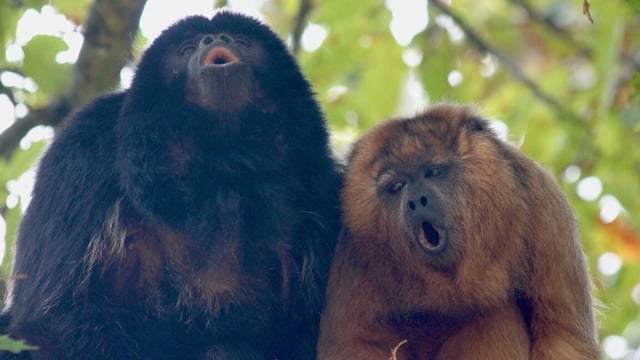Overview
- New World monkeys have evolved the largest vocal membranes among primates, enabling frequency transitions up to five times larger than those of human yodels, often spanning over three octaves.
- The study identified two modes of vocal fold vibration in monkeys: one involving only the vocal folds and another incorporating vocal membranes, which produce dramatic frequency shifts akin to human yodeling.
- Researchers suggest that these vocal membranes enhance monkeys' call repertoire, aiding in social communication and attention-grabbing vocalizations critical for complex social behavior.
- The findings highlight an evolutionary trade-off, as the vocal membranes destabilize pitch, which may explain their loss in humans to prioritize stability in speech and singing.
- The study, published in the journal Philosophical Transactions of the Royal Society B, involved CT scans, computer simulations, and field recordings at La Senda Verde Wildlife Sanctuary in Bolivia, with contributions from international institutions.
